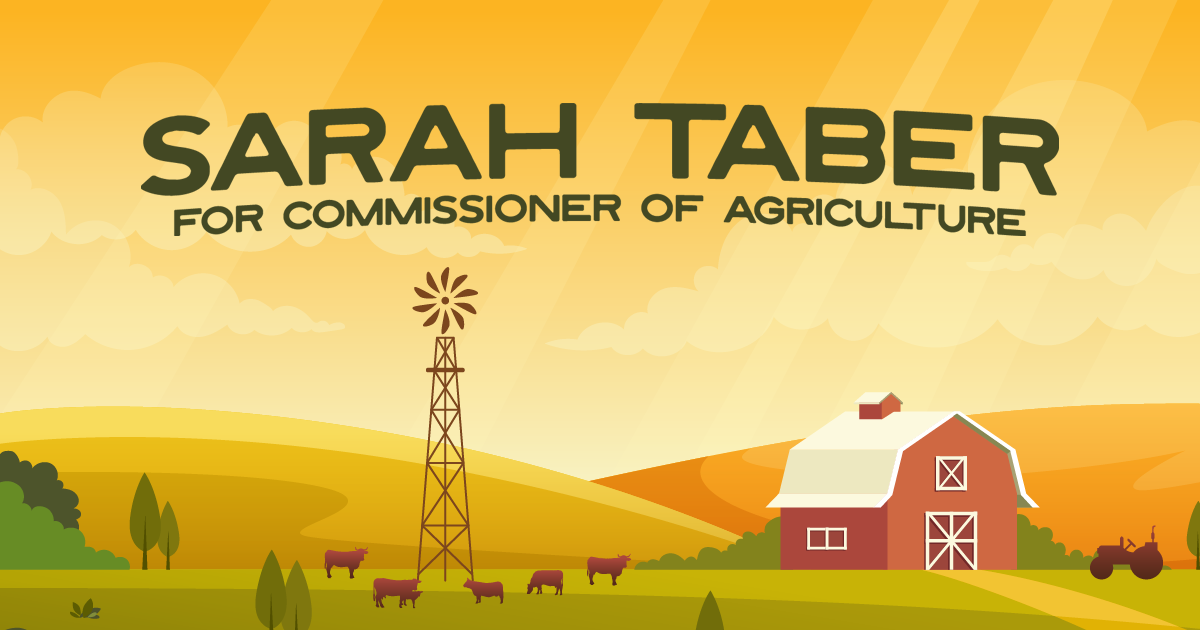North Carolina, I ask for your vote.
We've come a long way in the past year. From being the "biggest underdog" to putting this race within the margin of error, this wouldn’t have been possible without you.
North Carolina, I ask for your vote.
We've come a long way in the past year. From being the "biggest underdog" to putting this race within the margin of error, this wouldn’t have been possible without you.
Let's do this North Carolina! Today's the last day of in-person early voting, or make your plan to vote on Election Day! Visit IWillVote.com for all of the info you need on where and when to vote. 

Who's ready for GRAPE FACTS 
For every donation to this link, I will post one (1) fact about grapes! Raisins! Vineyards! Wine!

This is a campaign for every North Carolinian, and we won't get anywhere without support from as many of our neighbors as possible. By becoming a founding, grassroots supporter of Sarah's campaign, you can help us get off to the strong start we need to build a working countryside that works for everyone.
ActBlue (secure.actblue.com)

Those are muscadine grapes. Signed, a farmer 
The NC GOP imagination must be an interesting place! Time for facts.
I'm a small family farmer- just like 89.7% of North Carolina's farms. I'm on a first-name basis with their situation.
If I'm not a "real farmer," neither are most of the farmers in North Carolina.
And it's not just me they treat like this. When I talk with NC farmers, what I hear is
"Steve Troxler doesn't care about my farm. Just his & his friends' farms."
"I don't think he'd know how to help me if he wanted to."
That's not "just" from small farmers. It's all over NC.
Squash bees nest by digging tunnels down into bare soil- often right under the squash plants they pollinate. Less commute that way.
If you see little piles & tunnels in the dirt around squash plants, it's probably squash bees!
Lots of other bees visit flowers in the squash family: bumblebees, honeybees, etc.
But most of the real pollinating is done by squash bees waaaayyy early in the morning, before any of those other bees wake up.
This is a great example of why farms need wild bees!
Squash bees keep odd hours. They visit flowers before the sun comes up.
Why? We don't know!
But we do know squash bees are WAY better at pollinating squash flowers than honeybees. That's because squash bees' fuzz can pick up squash pollen effectively! Honeybees can't!
Bee facts are back! Let's talk about squash bees!
Squash bees only visit flowers of squash, gourd, pumpkin, melon, and cucumber plants.
These plants have big, sticky pollen grains. Squash bees' leg hairs are long & unbranched so they can pick up & carry their pollen.
Taking a quick break- I'll be at the NC State Fair this evening!
I'll be at the Democratic Party booth at 6.30 or 7! We're in the Education building with the quilt & cake decorating exhibits.
Will be back with more Bee Facts tonight ( :
A hazard of beekeeping: you gotta check yourself carefully & get all the bees back in the hive before you close it up.
If you don't, you might have lost nurse bees wandering around on your clothes all day trying to figure out how to get home 
Nurse bees!
Honeybees spend the first 2-3 weeks of adulthood feeding larvae. They don't know how to fly or sting yet.
This little chonk is a blue orchard bee! They call em BOBs.
If you need a fruit orchard pollinated in spring, this is the bee for you! Honeybees are ok for that. But BOBs are better able to fly around & do the job in cool, rainy early spring weather.
Honeybees are famous for working hard, but if you watch a hive, most of them spend a lot of time just chillin out on the honeycomb.
So when people tell you you gotta "be a good worker bee".... now you know the secret to their work ethic. Secure housing, affordable food, & naps.
These little green bees are sweat bees. They're called that because they love salt & might come get some from you if you're sweaty.
They're solitary, sting but not very hard, and most of them nest in bare patches of dirt next to plants.
Plant flowers & leave some bare spots!
But wild bees are still having a rough time!
So some of these bee facts will be about honeybees. And I'll also post some wild bees that I think you will like.
After a rough time with colony collapse disorder in the early 2000s, US honeybee populations have recovered!
https://www.washingtonpost.com/business/2024/03/29/bees-boom-colony-collapse/
We don't know why smoke calms bees down!
We have some theories- maybe it covers up the smell of their alarm pheromones? Maybe they think there's a forest fire so they eat a lot of honey to prep for evacuating & mellow out?
No solid, proven reason why though.
To kick us off: if you need to find the queen in a honeybee hive, there's usually a ring of bees standing around her in a circle.
Sounds weird but the ring of bees is usually easier to find than looking for the queen herself.